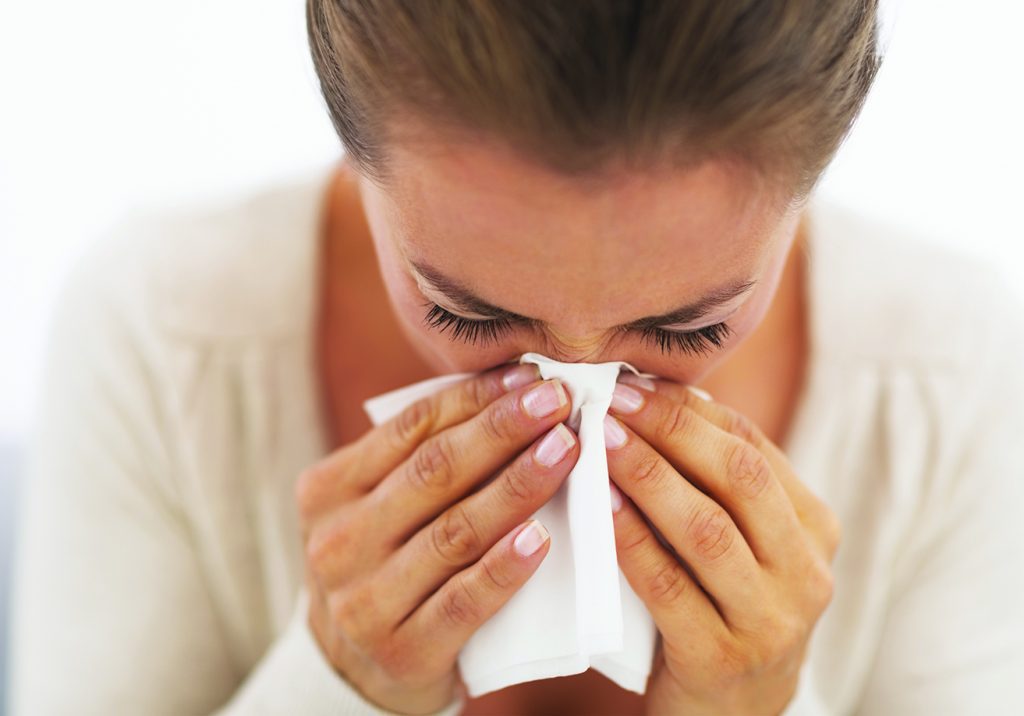 Allergy is an adverse reaction to certain foods, dust, dust mites, mildew, pollens, pets, cosmetics, plants, metals, chemicals, or medications. The immune system tends to overreact in these cases. This can produce inflammation, irritation, and even life threatening respiratory distress or allergic shock. Over 20% of Americans suffer from these genetic diseases, which are very disruptive to the patient and the family. The allergic reaction can affect the nose and sinuses causing frequent respiratory infections and sinus diseases; the lungs causing asthma; the skin causing eczema and hives; or the more serious anaphylaxis (allergic shock).
Allergy is an adverse reaction to certain foods, dust, dust mites, mildew, pollens, pets, cosmetics, plants, metals, chemicals, or medications. The immune system tends to overreact in these cases. This can produce inflammation, irritation, and even life threatening respiratory distress or allergic shock. Over 20% of Americans suffer from these genetic diseases, which are very disruptive to the patient and the family. The allergic reaction can affect the nose and sinuses causing frequent respiratory infections and sinus diseases; the lungs causing asthma; the skin causing eczema and hives; or the more serious anaphylaxis (allergic shock).
Allergy and Asthma symptoms include itchy, swollen and watery eyes; runny, stuffy and itchy nose; coughing, shortness of breath, wheezing, and tightness in the chest. Many people respond to allergic disease in less obvious ways and may not realize that allergies are the cause of chronic cough, frequent respiratory and ear infections, sinus symptoms, sinus headaches, migraines, dizziness, loss of smell and taste, hearing loss, hives, eczema, other skin rashes, sores in the mouth and tongue, diarrhea, nausea and vomiting. Allergy to medications and insects can be serious at times. Accurate diagnosis is the key for effective treatment.
Allergic children come from allergic parents. If children show symptoms it is helpful to know the allergy history of parents and grandparents. An early allergy symptom in children can be eczema and problems with formulas and table foods and drinks when introduced. Allergic children have asthma, frequent colds, bronchitis, pneumonia, ear infections, enlarged tonsils and adenoids, hearing loss and speech problems. Asthma and hearing loss in children are serious sequels of allergy. Early diagnosis and treatment of allergies is crucial to prevent complications.
We obtain a complete patient history, evaluate the patient environment and lifestyle, do a detailed physical examination, order special blood tests and evaluate lung function. Allergy testing is done by skin tests or by blood tests. When indicated, we do selected skin tests for possible environmental, food or chemical allergens. Skin tests are the preferred method because they yield much more reliable results. This leads to correct diagnosis, rapid treatment, and fast relief.
Although there is no cure for allergic diseases, almost complete long-term control of symptoms is achievable by environmental and food control, special avoidance programs, certain medications and most importantly by desensitization using allergy shots (immunotherapy). Immunotherapy has approximately 85% success rate. Visit our website, www.allergytoday.com where you can find more information about symptoms and treatments of various allergies. Our best wishes for good health.
Allergy, Asthma, Sinus & Immunology Center
239.261.5599
www.allergytoday.com









